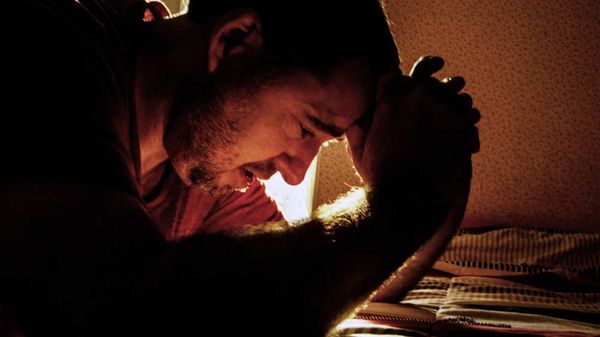May 22, 2012
The Thin Pink Line
Kilian Melloy READ TIME: 6 MIN.
If you had asked me what to do with, or to, Dharun Ravi, my first impulse would have been to say lock him up for a few years and then, upon his release, deport him.
Ravi's May 21 sentencing was quite a lot milder than that, which is probably a good thing. In case you have just now returned from a stint of living as an ascetic in India, where Ravi's family is from, and have missed Ravi's trial, the long and short of it is that Ravi had a gay roommate named Tyler Clementi. In September of 2010, as a long and anguishing summer of gay teen and pre-teen suicides was grinding toward fall, Clementi, a freshman at Rutgers University in New Jersey, became the object of actions that violated his privacy and made him the butt of anti-gay treatment online.
Ravi was the author of those actions, first spying on Clementi and another man, known only as M.B., with a webcam. Then Ravi posted word of having spied on the two, who were having an intimate moment when they were surveilled. Worst of all, Ravi seemingly planned to repeat his actions, setting up his webcam and sending out word that "it's happening again," and inviting others to come and spy right along with him. Clementi derailed the plan, and the screen went dark on Ravi's alleged plan to turn his gay roommate's encounter into public entertainment, but that small victory may have paled next to the attitude Clementi seemed to have picked up on--an attitude in which, as Clementi blogged, his roommate was the one being asked by sympathetic fellow students whether he was okay.
Was Ravi okay? He was fine. Having a gay roommate doesn't hurt anybody. But having a roommate who violates your privacy and then crows about it and issues a call for others to do the same? How hurtful is that?
Tyler Clementi ended up jumping off a bridge. His suicide brought the twin issues of homophobic bullying and gay kids killing themselves into sharp, blazing relief, and led to the creation of the country's toughest anti-bullying legislation in New Jersey.
Clementi, and the other young gay martyrs who died that summer, and who died before and since, have paid a price they should not have had to pay simply for being gay. They have also prompted a lethargic nation that is largely unconcerned with the needs of minorities to do a little soul-searching. That those kids' blood had to be spilled in order for the questions to be asked is bad enough, but it's unforgivable that even now, in the face of such suffering and carnage, so little of substance has changed.
In order to panic voters into supporting Proposition 8, anti-gay activists created TV ads that linked the issue of marriage equality to the sexuality of pre-adolescent children. The ads claimed, falsely, that young students would be forced to learn about gay families in the classroom unless gay families were deprived of their legal status. The suggestion was that young kids can be "turned" gay, and therefore Tom and Bill, and Kathy and Shauna, should be denied family equality. The ads were pure hogwash, but they were also highly effective; Proposition 8 passed because of those ads, and those ads were later re-deployed in Maine, where a similar ballot initiative yanked marriage rights from same-sex families there in 2009.
When anti-gay bigots deployed their hugely misleading and fear-inducing ads to drum up support for those anti-gay ballot initiatives in California and Maine, they placed a heavy burden not only on gay adults who only wished to be recognized as members of committed, valid families; they also placed a painful cross right on the shoulders of gay youth, who wish, much as straight youth do, to grow up to become solicitous spouses and attentive, loving parents. In part, that burden stems from stealing the future from gay kids, telling them that they are not going to have families if they are gay. The law won't allow it. (As if telling kids they were going to burn in Hell wasn't bad enough.)
But in larger and more immediate part, the damage those messages do is in suggesting that kids in school should not hear about gay and lesbian married couples--should not hear, in other words, that they can be as successful in their relationships, as successful in parenting, and as tenderly devoted as the (largely mythical) heterosexual couples who are paraded as examples of what is "normal" and "right."
Meantime, of course, kids are hearing all about gay families in the schoolyard: Hearing that they are "sick," or "perverted," or somehow not normal and right.
The examples we set before kids are crucial to their wellbeing. They inform kids about the possibilities that await them; they model what is constructive and, indeed, what is possible for their own lives. Refusing to allow gay kids a positive role model for their own future family life is a terrible and abusive thing. Refusing to provide models of respectable gay adults, or to model respect for gays, damages hetero kids as well, teaching them that it's okay to belittle, demean, and even demonize gays: After all, they're only queers, right? They don't actually have, like, human feelings or anything, right?
Though I would personally have loved to see the courts make an example of Dharun Ravi, I am glad that there was a judge who could be more objective about the case and make a milder determination. After all... and for the sake of fairness, let's be clear about this... Dharun Ravi did not kill Tyler Clementi. Tyler Clementi took his own life. Arguments about how large a role Ravi's actions may have played in pushing Clementi to suicide can never be fully settled, because we just don't know, and will never know, how much impact Ravi's actions had and whether Clementi might have ended his own life even if he'd never met Ravi. But Ravi certainly did not help to ease whatever suffering, anxiety, or anguish Tyler Clementi experienced as a young gay man in a country that still seems to hate gays.
That said, I am not pleased that Ravi was sentenced to several 30-day jail terms set to run concurrently, so that he's only going to serve a month all told. You can get more serious jail time for smoking on public transportation, and we're talking about a guy who not only spied on his gay roommate and then denigrated him for being gay, but who tampered with evidence after the fact. (His lack of apology was something else the judge took note of, but if we start legislating things like remorse, then what's to stop us legislating things like, oh, I dunno, people's sex lives?)
The judge also recommended that Ravi not be deported, and on reflection I support that. Ravi may have acted like a high-handed, entitled asshole, but there's nothing more quintessentially American than that, and in a way, we deserve him because he is a result of our cultural high-handedness.
The argument has been made that Clementi probably did not throw himself off that bridge as a direct result of what Ravi did. I believe that is probably true; I believe that Dharun Ravi is more a symptom of a deeply gay-hostile social and political system than a homophobic menace in and of himself, and Clementi's act of self-destruction probably had far deeper roots than Ravi's acts of, as the judge put it, "colossal insensitivity."
But the bad behavior and sick, violent disposition that our culture demonstrates toward gays does not excuse Ravi's own criminal conduct. The guy should have paid a higher price, and I don't just mean the media exposure he suffered, or enjoyed, for more than a year and a half, or his guilty conscience (if indeed he has pangs of conscience; they have been hard to spot). I don't know if jail time is even the answer; another student who violated Clementi's privacy, though to a less egregious extent, was Molly Wei, and she served 250 hours of community service. Maybe a thousand hours or so would have served Ravi, and society at large, better than the month of jail time he received (or even the decade he might have gotten if the judge had gone for maximal sentencing).
There is a thin pink line that separates the merely juvenile from the criminally homophobic, and for far too long the perpetrators in anti-gay crimes have crossed that line with little or nothing in the way of punishment. All too often, that thin pink line traces the bodies of our youth where they have fallen. I would not trust myself to be the judge in a case like this, because I can't be objective--but one month? Surely Ravi could have received a sentence more approximating justice.
Kilian Melloy serves as EDGE Media Network's Associate Arts Editor and Staff Contributor. His professional memberships include the National Lesbian & Gay Journalists Association, the Boston Online Film Critics Association, The Gay and Lesbian Entertainment Critics Association, and the Boston Theater Critics Association's Elliot Norton Awards Committee.







